Description
You will receive this product immediate after placing the order
ISBN-10: 0133973697
ISBN-13: 9780133973693 978-0133973693
Testbank Questions
Title/Author: Business and Professional Communication: Principles and Skills for Leadership/ Steven A. Beebe and Timothy P. Mottet
Chapter Number: 2
Question Counts Required:
| Multiple Choice – 10 questions @ Bloom’s level: Understanding |
10 |
| Multiple Choice – 15 questions @ Bloom’s AAE |
15 |
| Short Answer – 5 questions @ Bloom’s AAE |
5 |
| Essay – 5 questions @ Bloom’s AAE |
5 |
| Total questions per chapter: |
35 |
Note: Here starts 10 Multiple Choice Understanding level questions
| Question Title |
M/C Question 1
|
| Assessment Type |
Multiple-choice |
| Question Stem |
The ________ approach is taken by a leader to manage a group to complete a task and guide the team toward a common organizational goal. |
| Answer Choices |
|
Answer |
Correct Answer (x) |
Feedback |
| a. |
functional |
X |
|
| b. |
style |
|
Consider This: This approach to leadership divides the essential leadership behaviors into two categories: (1) task functions and (2) process functions.
LO 2.1: Analyze how being aware of the social skills of the self and of others helps to adapt effectively to the communication skills of others |
| c. |
trait |
|
Consider This: This approach to leadership divides the essential leadership behaviors into two categories: (1) task functions and (2) process functions.
LO 2.1: Analyze how being aware of the social skills of the self and of others helps to adapt effectively to the communication skills of others |
| d.
|
situational |
|
Consider This: This approach to leadership divides the essential leadership behaviors into two categories: (1) task functions and (2) process functions.
LO 2.1: Analyze how being aware of the social skills of the self and of others helps to adapt effectively to the communication skills of others |
|
| Learning Objective |
LO 2.1: Analyze how being aware of the social skills of the self and of others helps to adapt effectively to the communication skills of others |
| Topic/Concept |
Be Aware of Leadership Approaches |
| Difficulty Level
(mark X where applicable) |
| Easy |
Moderate |
Difficult |
| X |
|
|
|
| Skill Level (mark X where applicable) |
| Understand the Concepts |
Apply What You Know |
Analyze It |
Evaluate It |
| X |
|
|
|
|
| Question Title |
M/C Question 2
|
| Assessment Type |
Multiple-choice |
| Question Stem |
What is the style of leadership called in which power and authority is distributed to employees and managers to provide employee involvement in decision? |
| Answer Choices |
|
Answer |
Correct Answer (x) |
Feedback |
| a. |
Democratic |
X |
|
| b. |
Authoritarian |
|
Consider This: This type of leader encourages team members to share ideas and opinions, even though he or she retains the final say over decisions.
LO 2.1: Analyze how being aware of the social skills of the self and of others helps to adapt effectively to the communication skills of others |
| c. |
Laissez-faire |
|
Consider This: This type of leader encourages team members to share ideas and opinions, even though he or she retains the final say over decisions.
LO 2.1: Analyze how being aware of the social skills of the self and of others helps to adapt effectively to the communication skills of others |
| d.
|
Transformational |
|
Consider This: This type of leader encourages team members to share ideas and opinions, even though the he or she retains the final say over decisions.
LO 2.1: Analyze how being aware of the social skills of the self and of others helps to adapt effectively to the communication skills of others |
|
| Learning Objective |
LO 2.1: Analyze how being aware of the social skills of the self and of others helps to adapt effectively to the communication skills of others |
| Topic/Concept |
Be Aware of Leadership Approaches |
| Difficulty Level
(mark X where applicable) |
| Easy |
Moderate |
Difficult |
| X |
|
|
|
| Skill Level (mark X where applicable) |
| Understand the Concepts |
Apply What You Know |
Analyze It |
Evaluate It |
| X |
|
|
|
|
| Question Title |
M/C Question 3
|
| Assessment Type |
Multiple-choice |
| Question Stem |
According to which approach to motivation does a leader assume workers are motivated to work hard when they are rewarded for good work and not rewarded for poor work? |
| Answer Choices |
|
Answer |
Correct Answer (x) |
Feedback |
| a. |
Classical |
X |
|
| b. |
Human relations |
|
Consider This: This approach states that the leader’s job is to influence the workers to behave in ways that help them produce goods or services in the most efficient and effective way possible.
LO 2.2: Evaluate the different motivational approaches followed in organizations |
| c. |
Human resources |
|
Consider This: This approach states that the leader’s job is to influence the workers to behave in ways that help them produce goods or services in the most efficient and effective way possible.
LO 2.2: Evaluate the different motivational approaches followed in organizations |
| d.
|
Behavioral |
|
Consider This: This approach states that the leader’s job is to influence the workers to behave in ways that help them produce goods or services in the most efficient and effective way possible.
LO 2.2: Evaluate the different motivational approaches followed in organizations |
|
| Learning Objective |
LO 2.2: Evaluate the different motivational approaches followed in organizations |
| Topic/Concept |
Be Aware of Leadership Assumptions
|
| Difficulty Level
(mark X where applicable) |
| Easy |
Moderate |
Difficult |
| X |
|
|
|
| Skill Level (mark X where applicable) |
| Understand the Concepts |
Apply What You Know |
Analyze It |
Evaluate It |
| X |
|
|
|
|
| Question Title |
M/C Question 4
|
| Assessment Type |
Multiple-choice |
| Question Stem |
Which approach to motivation assumes that to motivate people is to give them the tools, support, and conditions they need to solve problems? |
| Answer Choices |
|
Answer |
Correct Answer (x) |
Feedback |
| a. |
Human resources |
X |
|
| b. |
Human relations |
|
Consider This: This approach states that people are motivated when leaders empower them to solve problems and make decisions.
LO 2.2: Evaluate the different motivational approaches followed in organizations |
| c. |
Classical |
|
Consider This: This approach states that people are motivated when leaders empower them to solve problems and make decisions.
LO 2.2: Evaluate the different motivational approaches followed in organizations |
| d.
|
Behavioral |
|
Consider This: This approach states that people are motivated when leaders empower them to solve problems and make decisions.
LO 2.2: Evaluate the different motivational approaches followed in organizations |
|
| Learning Objective |
LO 2.2: Evaluate the different motivational approaches followed in organizations |
| Topic/Concept |
Be Aware of Leadership Assumptions |
| Difficulty Level
(mark X where applicable) |
| Easy |
Moderate |
Difficult |
| X |
|
|
|
| Skill Level (mark X where applicable) |
| Understand the Concepts |
Apply What You Know |
Analyze It |
Evaluate It |
| X |
|
|
|
|
| Question Title |
M/C Question 5
|
| Assessment Type |
Multiple-choice |
| Question Stem |
Which factor reflects the organizational culture in which employees are recognized and rewarded for their achievements, and these elements are valued by the organization? |
| Answer Choices |
|
Answer |
Correct Answer (x) |
Feedback |
| a. |
Ceremonies |
X |
|
| b. |
Metaphors |
|
Consider This: The organizational culture is reflected when longevity is valued and rewarded in a company.
LO 2.3: Recognize the need to be aware of organizational culture for effective communication |
| c. |
Written rules |
|
Consider This: The organizational culture is reflected when longevity is valued and rewarded in a company.
LO 2.3: Recognize the need to be aware of organizational culture for effective communication |
| d.
|
Art decors |
|
Consider This: The organizational culture is reflected when longevity is valued and rewarded in a company.
LO 2.3: Recognize the need to be aware of organizational culture for effective communication |
|
| Learning Objective |
LO 2.3: Recognize the need to be aware of organizational culture for effective communication |
| Topic/Concept |
Be Aware of Organizational Culture |
| Difficulty Level
(mark X where applicable) |
| Easy |
Moderate |
Difficult |
| X |
|
|
|
| Skill Level (mark X where applicable) |
| Understand the Concepts |
Apply What You Know |
Analyze It |
Evaluate It |
| X |
|
|
|
|
| Question Title |
M/C Question 6
|
| Assessment Type |
Multiple-choice |
| Question Stem |
Which factors reflect the organizational culture when cues are given through formal and informal communication channels? |
| Answer Choices |
|
Answer |
Correct Answer (x) |
Feedback |
| a. |
Written rules and policies |
X |
|
| b. |
Metaphors and policies |
|
Consider This: These are found on websites and in handbooks, or are presented during orientation sessions.
LO 2.3: Recognize the need to be aware of organizational culture for effective communication |
| c. |
Stories and rules |
|
Consider This: These are found on websites and in handbooks, or are presented during orientation sessions.
LO 2.3: Recognize the need to be aware of organizational culture for effective communication |
| d.
|
Ceremonies and metaphors |
|
Consider This: These are found on websites and in handbooks, or are presented during orientation sessions.
LO 2.3: Recognize the need to be aware of organizational culture for effective communication |
|
| Learning Objective |
LO 2.3: Recognize the need to be aware of organizational culture for effective communication |
| Topic/Concept |
Be Aware of Organizational Culture |
| Difficulty Level
(mark X where applicable) |
| Easy |
Moderate |
Difficult |
| X |
|
|
|
| Skill Level (mark X where applicable) |
| Understand the Concepts |
Apply What You Know |
Analyze It |
Evaluate It |
| X |
|
|
|
|
| Question Title |
M/C Question 7
|
| Assessment Type |
Multiple-choice |
| Question Stem |
When the civil engineer on a team estimates the quantity of steel and concrete required to build a suspension bridge, she uses ________ power. |
| Answer Choices |
|
Answer |
Correct Answer (x) |
Feedback |
| a. |
expert |
X |
|
| b. |
referent |
|
Consider This: This type of organizational power arises from having information and being knowledgeable about issues or ideas.
LO 2.4: Express the need to remain ethical in all forms of roles in an organization |
| c. |
coercive |
|
Consider This: This type of organizational power arises from having information and being knowledgeable about issues or ideas.
LO 2.4: Express the need to remain ethical in all forms of roles in an organization |
| d.
|
reward |
|
Consider This: This type of organizational power arises from having information and being knowledgeable about issues or ideas.
LO 2.4: Express the need to remain ethical in all forms of roles in an organization |
|
| Learning Objective |
LO 2.4: Express the need to remain ethical in all forms of roles in an organization
|
| Topic/Concept |
Be Aware of Organizational Power
|
| Difficulty Level
(mark X where applicable) |
| Easy |
Moderate |
Difficult |
| X |
|
|
|
| Skill Level (mark X where applicable) |
| Understand the Concepts |
Apply What You Know |
Analyze It |
Evaluate It |
| X |
|
|
|
|
| Question Title |
M/C Question 8
|
| Assessment Type |
Multiple-choice |
| Question Stem |
Which power base refers to charismatic leaders who are able to invoke passion due to their magnetic personality among subordinates? |
| Answer Choices |
|
Answer |
Correct Answer (x) |
Feedback |
| a. |
Referent |
X |
|
| b. |
Reward |
|
Consider This: These types of leaders use the quality relationships they have with others to wield their influence.
LO 2.4: Express the need to remain ethical in all forms of roles in an organization |
| c. |
Legitimate |
|
Consider This: These types of leaders use the quality relationships they have with others to wield their influence.
LO 2.4: Express the need to remain ethical in all forms of roles in an organization |
| d.
|
Expert |
|
Consider This: These types of leaders use the quality relationships they have with others to wield their influence.
LO 2.4: Express the need to remain ethical in all forms of roles in an organization |
|
| Learning Objective |
LO 2.4: Express the need to remain ethical in all forms of roles in an organization
|
| Topic/Concept |
Be Aware of Organizational Power
|
| Difficulty Level
(mark X where applicable) |
| Easy |
Moderate |
Difficult |
| X |
|
|
|
| Skill Level (mark X where applicable) |
| Understand the Concepts |
Apply What You Know |
Analyze It |
Evaluate It |
| X |
|
|
|
|
| Question Title |
M/C Question 9
|

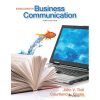
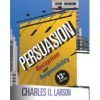
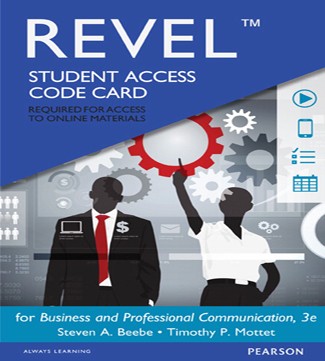
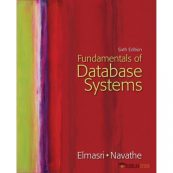
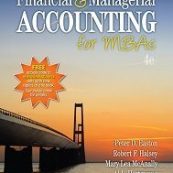


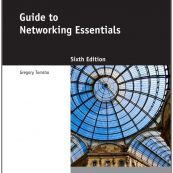
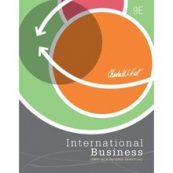



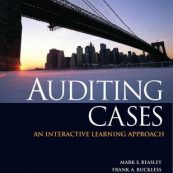
Reviews
There are no reviews yet.